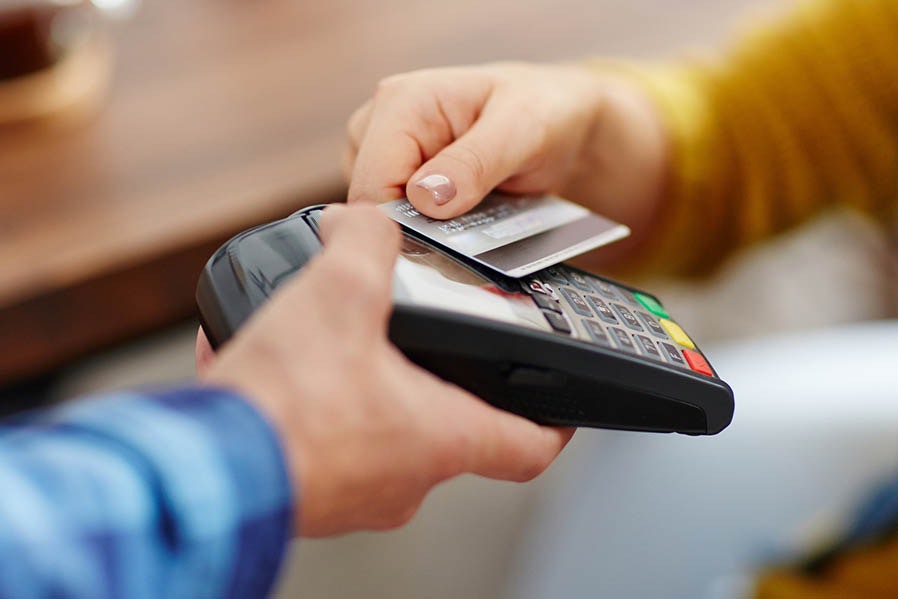Shoppers who use buy-now, pay-later are being charged more than $10 million a year in late fees, our latest survey found.
Close to four out of 10 Kiwi consumers use buy-now, pay-later services – such as Afterpay, Laybuy and Zip.
Paying this way is marketed as a convenient option: you get your goods upfront and pay them off in weekly or fortnightly instalments.
Companies are keen to emphasise the services are interest-free. But the big downside is you’ll be charged late fees if you can’t pay an instalment on time.
And if you can’t pay off your purchase, you could find the debt collector at your door and a black mark on your credit file.
Mounting fees
As many as one in seven consumers have been charged a missed-payment fee by a buy-now, pay-later company in the past two years, our survey found.
Most of these shoppers had been stung with fees more than once.
Based on how much customers said they’d been charged, we estimate late fees could add up to more than $10m a year.
Annual reports from Afterpay and Laybuy, two of the major players, show income from late fees isn’t small change. In the past year, Laybuy earned $14.8m from late fees across the countries in which it operates; Afterpay earned $69m.
Both companies point out they’ve capped late fees so customers won’t keep being charged penalties if they get behind (see our Table). However, even with these caps, fees can be sizable relative to the item purchased.
Spend $150 with Laybuy and missed payment fees could add another $40 to your debt. That’s equivalent to 27 percent of the purchase price.
What they charge
Cost of convenience
The buy-now, pay later industry has grown rapidly. It’s hard to walk down the high street without seeing signs for the services in shop windows.
Billboard and TV ads promote them as an easy option if you don’t have cash on hand – “get it now”, “account set up is a breeze”!
Actor Rebel Wilson recently featured in a TV ad for Afterpay, promoting the service as like eating “the whole tub of ice cream and spreading calories over six weeks”.
The company ended up pulling the ad, which played here and in Australia, after Aussie consumer groups complained it was irresponsible.
With or without Rebel Wilson, the industry’s investment in marketing is paying off.
Buy-now, pay-later has proven particularly appealing to young shoppers. We found customers aged 18 to 29 were more likely to be regular users, with clothing and footwear the top purchases.
However, it’s not just being used to buy new threads.
Close to one in five consumers are using buy-now, pay-later for essentials, such as groceries and car repairs.
Buy-now, pay-later customers aged 35 to 44 and single parents were more likely to have done so. They were also more likely to have incurred late fees: about half said they’d had late fees added to their accounts in the past two years.
Couples with young children at home were also more likely to have been stung with fees.
Fifty-five percent of buy-now, pay-later customers said the payment option had encouraged them to make purchases they would not otherwise have made.
By the numbers
Across all consumers:
38% use buy-now, pay-later
19% have used it to purchase essential items
14% have incurred late-payment fees
Buy-now, pay-later customers more likely to be stung with late fees:
those aged 35 to 44
single parents
couples with child/children at home
Our data are from a nationally representative survey of 2000 New Zealanders aged 18 years and over, carried out online in April and May 2021.
Shoppers at risk
When you purchase items using buy-now, pay-later, you’re essentially borrowing money from the company and paying back that loan in fixed instalments.
But unlike every other lender, buy-now, pay-later companies aren’t covered by the Credit Contracts and Consumer Finance Act.
That means when you use these services, you don’t have the same rights as other consumers buying on credit:
You don’t get a cooling-off period to cancel the deal if you change your mind about the purchase.
If you get into financial trouble, you don’t have the same right to make a hardship application to reduce payments for a while.
What’s more, buy-now, pay-later providers don’t have any legal obligation to comply with responsible lending rules.
International action
Regulators in other countries are taking steps to reduce the harm being caused by buy-now, pay-later.
From October, Aussie companies will be subject to new rules requiring them to demonstrate their products are suitable for customers.
In the UK, a recent law review recommended urgent law changes to regulate buy-now, pay-later products.
In Sweden, online retailers have been banned from presenting buy-now, pay-later as the “first choice” of payment ahead of cheaper options.
What we want
We’re calling for buy-now, pay-later services to be regulated under the Credit Contracts and Consumer Finance Act. We've written a letter (353 KB) to the Minister of Commerce and Consumer Affairs asking the government to regulate these services. Sixteen other organisations, including FinCap, The Salvation Army, Christians Against Poverty and Debtfix, support our call for regulation.
In our view, customers of these services should have the same protections as consumers who use any other form of credit.


